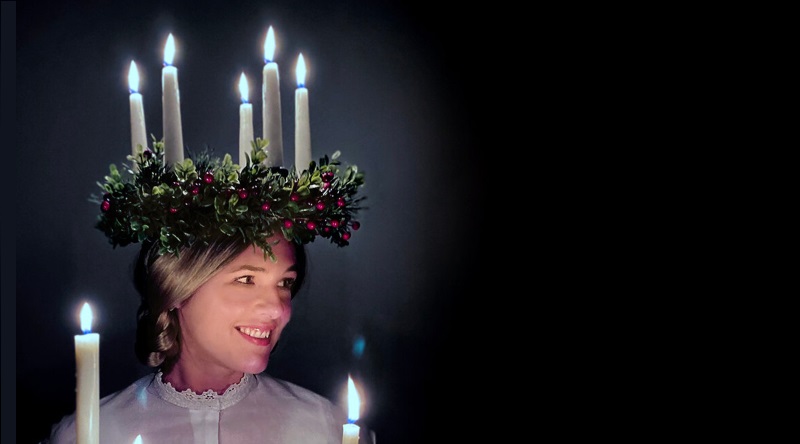Test your Christmas trivia skills
Take out a clean sheet of paper and a number 2 pencil. It’s time for the Hope and Humor Christmas trivia test!
1. Which of the following events occurred on December 25?
a) Jesus was born in AD 0.
b) The Pilgrims began building an American settlement in 1620.
c) George Washington crossed the Delaware River in 1776.
d) None of the above.
e) b and c
f) (a-b) = (c+d)
2. True or false. “Hark! The Herald Angels Sing.”
Answer
3. Name the three wisemen who visited the stable where Jesus was born. (Extra credit for correct spelling.)
Answer
4. The oldest Christmas carol is . . .
a) . . . “O Come, All Ye Faithful”
b) . . . “Jesus Light of All the Nations”
c) . . . “Rockin’ Around the Christmas Tree”
d) . . . none of the above.
Answer
5. True of false? There really was a St. Nick.
Answer
6. True or false? In 1644, the Puritans banned Christmas celebrations.
Answer
7. What famous Christmas poem did New York General Theological Seminary professor, Clement Clarke Moore, write in 1822?
Answer
8. True or false? “Noel” is French for Christmas.
Answer
9. The holiday season is celebrated by . . .
a) . . . children sleeping on beds of straw in Slavic countries to commemorate Christ’s birth in a stable.
b) . . . filling wooden shoes with straw in Holland.
c) . . . setting out shoes in Italy to be filled by the female Santa Claus, La Befena.
d) . . . burning old shoes in Greece to ward off bad luck.
e) . . . throwing old shoes at humor columnists in Azerbaijan.
f) . . . shooting off fireworks in China, France, Italy and Spain.
g) . . . none of the above.
h) . . . all of the above except e.
Answer
10. What does the X in “Xmas” stand for?
Answer
Copyright © 1998 James N. Watkins. All rights reserved.
For more hope and ho! ho! ho! visit The 12 Sites of Christmas
If you enjoyed this post, please share it on your social networks. Thanks! And have a very meaningful Christmas.
1. The correct answer is E.
There is no proof that Jesus was born on December 25.
Scholars, however, believe that Zechariah’s priestly order of Abijah (Luke 1:5) served two times a year in March and September. So, if Zechariah and Elizabeth conceived in one of those months, and Mary was told she would give birth to God’s Son when Elizabeth was six months pregnant (Luke 1:26), Jesus would have been born in either late December or late June.
Shepherds moved their sheep around Israel to find the best grazing land. They would have been “keeping watch over their flock by night” in Bethlehem during late fall and early winter following the “first rains.”
We do know that Jesus was born before the death of Herod the Great on November 27, 4 B.C. (Matthew 2:1). So, I’m not being a heretic by stating that Jesus was born a few years before Christ (B.C.)!
Christmas is often claimed to be a Christian alternative to a Roman celebration called Saturnalia. The annual festival encouraged drunkenness and all kinds of sexual immorality, but was celebrated on December 17—but it often lasted nearly a week. The first recorded date of Christmas being celebrated on December 25 was in A.D. 336, during the time of the Roman Emperor Constantine. A few years later, Pope Julius I officially declared that the birth of Jesus would be celebrated on December 25.
Click BACK to return to quiz.
2. The correct answer is False.
Angels don’t sing, but speak in the Luke 2 account.
Click BACK to return to quiz.
3. Okay, this is a trick question!
The Matthew 2 account of the visit of the magi doesn’t provide names or a number. The tradition of three kings arises from the three gifts.
The wisemen visit the Christ “child” (not baby) in a “house.”
And, finally, Jesus was probably not born in a stable! The Greek word for inn, as “no room in the inn,” is actually the same word for the “upper room” (kataluma) where Jesus held the last supper. Houses were built with the first floor used to keep animals at night and the upper room for sleeping. Mary and Joseph stayed on the first floor because there was no room on the second floor. That would explain Jesus’ first crib as a “manger.”
Click BACK to return to quiz.
4. The correct answer is B.
“Jesus Light of the Nations” is believed to be the earliest hymn in celebration of Christ’s birth. Saint Hilary of Portiers wrote the song in 368 A.D.
Click BACK to return to quiz.
5. The correct answer is True.
St. Nicholas was the Bishop of Myra who was well known for his generosity. (For more about St. Nick, click here.)
Click BACK to return to quiz.
6. The correct answer is True.
The Puritans of England passed a law forbidding the observance of Christmas and making of plum pudding in 1644 believing that both were heathen customs.
Click BACK to return to quiz.
7. The correct answer is A Visit from Saint Nicholas which begins “‘Twas the night before Christmas . . . ”
Click BACK to return to quiz.
8. The correct answer is True. Oui!
Click BACK to return to quiz.
9. The correct answer is H.
Click BACK to return to quiz.
10. The correct answer is Chi.
The Greek letter chi looks like an “X.” Since the name of Christ begins with chi (x), Christmas became abbreviated in Europe around the 16th century as “Xmas.”
Unfortunately, in today’s culture X often stand for the unknown or something that has been X’ed out. And, more unfortunately, Christ has been X’ed out of many Christmas celebrations.
Related posts
The Twelve Sites of Christmas

